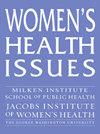以社区为基础的导乐试点项目考察退伍军人、导乐和VA产科护理协调员的看法和经验。
IF 2.5
2区 医学
Q2 PUBLIC, ENVIRONMENTAL & OCCUPATIONAL HEALTH
引用次数: 0
摘要
目的:在美国,孕产妇发病率和死亡率的种族差异是有案可查的,并且仍然是一个紧迫的公共卫生问题。在从退伍军人事务部领取社区产妇保健福利的退伍军人中,也注意到产妇保健方面的种族差异。先前对少数族裔的助产师护理的研究表明,少数族裔的早产和剖宫产率较低,对分娩经历的感觉更积极,新生儿重症监护病房的入院率较低。为了评估导乐护理是否对退伍军人有好处,我们在两个退伍军人医疗中心与社区导乐机构合作开展了一项小型试点研究。因此,本研究的总体目标是评估退伍军人、助产师和退伍军人事务部的产妇护理协调员(MCC)对以社区为基础的助产师项目的看法和经验,该项目旨在改善产妇的结局。方法:对参加过导乐护理计划的退伍军人、导乐师和退伍军人事务部mcc进行电话或视频访谈。访谈记录,转录,并使用内容分析技术进行分析。从分析中得出了主要的主题和代表性的语录。结果:28名退伍军人、7名导乐师和2名退伍军人事务部mcc参加了导乐研究并参加了访谈。研究确定了四个主要主题:1)退伍军人之前消极的分娩经历促进了对导乐护理的渴望;2)退伍军人在怀孕期间对导乐护理有积极的体验;3)导乐赋予了退伍军人在怀孕期间为自己辩护的权利;4)VA mcc欢迎与导乐合作。结论:退伍军人对导乐护理方案的满意度较高。VA MCC指出,助产师护理计划是对现有VA MCC计划的重要补充,并使MCC感到他们在照顾怀孕退伍军人方面有了额外的合作伙伴。本文章由计算机程序翻译,如有差异,请以英文原文为准。
Examining Veterans', Doulas', and VA Maternity Care Coordinators’ Perceptions and Experiences With a Community-based Doula Pilot Program
Objective
Racial disparities in maternal morbidity and mortality are well-documented and remain a pressing public health problem in the United States. Racial disparities in maternal health have also been noted among veterans receiving community-based maternity care benefits from the Department of Veterans Affairs (VA). Previous studies of doula care among minoritized racial groups have indicated lower rates of preterm and cesarean births, more positive feelings about childbirth experiences, and lower admissions to the neonatal intensive care unit. To assess whether doula care might be beneficial for veterans enrolled in VA care, we launched a small pilot study at two VA medical centers working in conjunction with community-based doula agencies. Therefore, the overarching objective of this study was to assess veterans', doulas', and VA maternity care coordinators’ (MCC) perceptions and experiences with a community-based doula program aimed at improving maternal outcomes.
Methods
Telephone or video interviews were conducted with veterans, doulas, and VA MCCs who had participated in the doula care program. Interviews were recorded, transcribed, and analyzed using content analysis techniques. Major themes and representative quotes were derived from the analyses.
Results
Twenty-eight veterans, seven doulas, and two VA MCCs enrolled in the doula study and participated in interviews. Four major themes were identified: 1) veterans’ previous negative birth experiences promoted desire for doula care, 2) veterans had positive pregnancy experiences with doula care, 3) doulas empowered veterans to advocate for themselves during pregnancy, and 4) VA MCCs welcomed doula partnerships.
Conclusion
Veterans expressed high levels of satisfaction with the doula care program. VA MCCs noted that a doula care program was an important addition to the existing VA MCC program and allowed MCCs to feel that they had an additional partner in caring for pregnant veterans.
求助全文
通过发布文献求助,成功后即可免费获取论文全文。
去求助
来源期刊

Womens Health Issues
Multiple-
CiteScore
4.50
自引率
6.20%
发文量
97
审稿时长
32 days
期刊介绍:
Women"s Health Issues (WHI) is a peer-reviewed, bimonthly, multidisciplinary journal that publishes research and review manuscripts related to women"s health care and policy. As the official journal of the Jacobs Institute of Women"s Health, it is dedicated to improving the health and health care of all women throughout the lifespan and in diverse communities. The journal seeks to inform health services researchers, health care and public health professionals, social scientists, policymakers, and others concerned with women"s health.
 求助内容:
求助内容: 应助结果提醒方式:
应助结果提醒方式:


